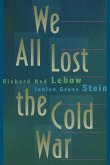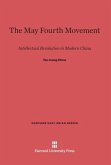The concept of generation as a historical category has never been used more effectively than in Lost Comrades. The socialists of the Front Generation, young men in 1914, were driven into political activity and ideological exploration by the experience of the First World War. Their efforts to renew socialism, to carry it beyond Marxism and beyond the working class, were profound and original, yet ultimately they failed.
Lost Comrades follows the Front Generation socialists from their questioning of Marxist orthodoxies in the 1920s into their confrontations with the twin challenges of fascism and world depression in the early 1930s. Responding to these dangers, they devised-with little success-counterpropaganda against the fascists and planning blueprints for the economy. Eventually, some of the most prominent-Sir Oswald Mosley in Britain, Hendrik de Man in Belgium, Marcel Déat in France-shifted their hopes to fascism or, dur- ing the Second World War, to collaborationism in Hitler's Europe. Others, however, like Carlo Mierendorff and Theodor Haubach in Germany, ended as martyrs in the anti-Nazi resistance. Yet even these divergent paths showed parallels reflecting their common starting point.
In tracing these unfulfilled careers, White brings a new clarity to the hopes and limitations of European socialism between the two world wars.
Lost Comrades follows the Front Generation socialists from their questioning of Marxist orthodoxies in the 1920s into their confrontations with the twin challenges of fascism and world depression in the early 1930s. Responding to these dangers, they devised-with little success-counterpropaganda against the fascists and planning blueprints for the economy. Eventually, some of the most prominent-Sir Oswald Mosley in Britain, Hendrik de Man in Belgium, Marcel Déat in France-shifted their hopes to fascism or, dur- ing the Second World War, to collaborationism in Hitler's Europe. Others, however, like Carlo Mierendorff and Theodor Haubach in Germany, ended as martyrs in the anti-Nazi resistance. Yet even these divergent paths showed parallels reflecting their common starting point.
In tracing these unfulfilled careers, White brings a new clarity to the hopes and limitations of European socialism between the two world wars.
Two of the most striking features of this book are its elegant composition and expression and its controversial subject. In the first instance White has, in masterly fashion, woven together a half-dozen intellectual-political biographies into a compelling story-one that reads like historical tragedy. It is no mean task to find the connections and continuities that bound together these Front Generation socialists. It is equally difficult to tie their stories together gracefully. The author skillfully criss-crosses the continent, moving his reader among contrasting geographic and historic contexts. In the second instance White has selected a subject that has been shrouded in accusations often unsubstantiated, controversy, and even some mystery. White has written with sympathy and insight about a generation of socialists of whom some are commonly assailed as renegades and collaborators if not fascists...He offers an explanation of the political-intellectual itineraries of these socialists and shows us why some ended in disgrace and others died as heroes...There is not, to my knowledge, any other book that covers this ground. Perhaps the daunting demands of this broad comparative subject have deterred other historians. Perhaps the aura of shame that surrounds some of these men has discouraged scholars. Whatever the reason, no one has tried to treat this group of socialists as a generation and to render comprehensible their often tragic fate. None of the literature on socialism or collaboration attempts what White has achieved.








